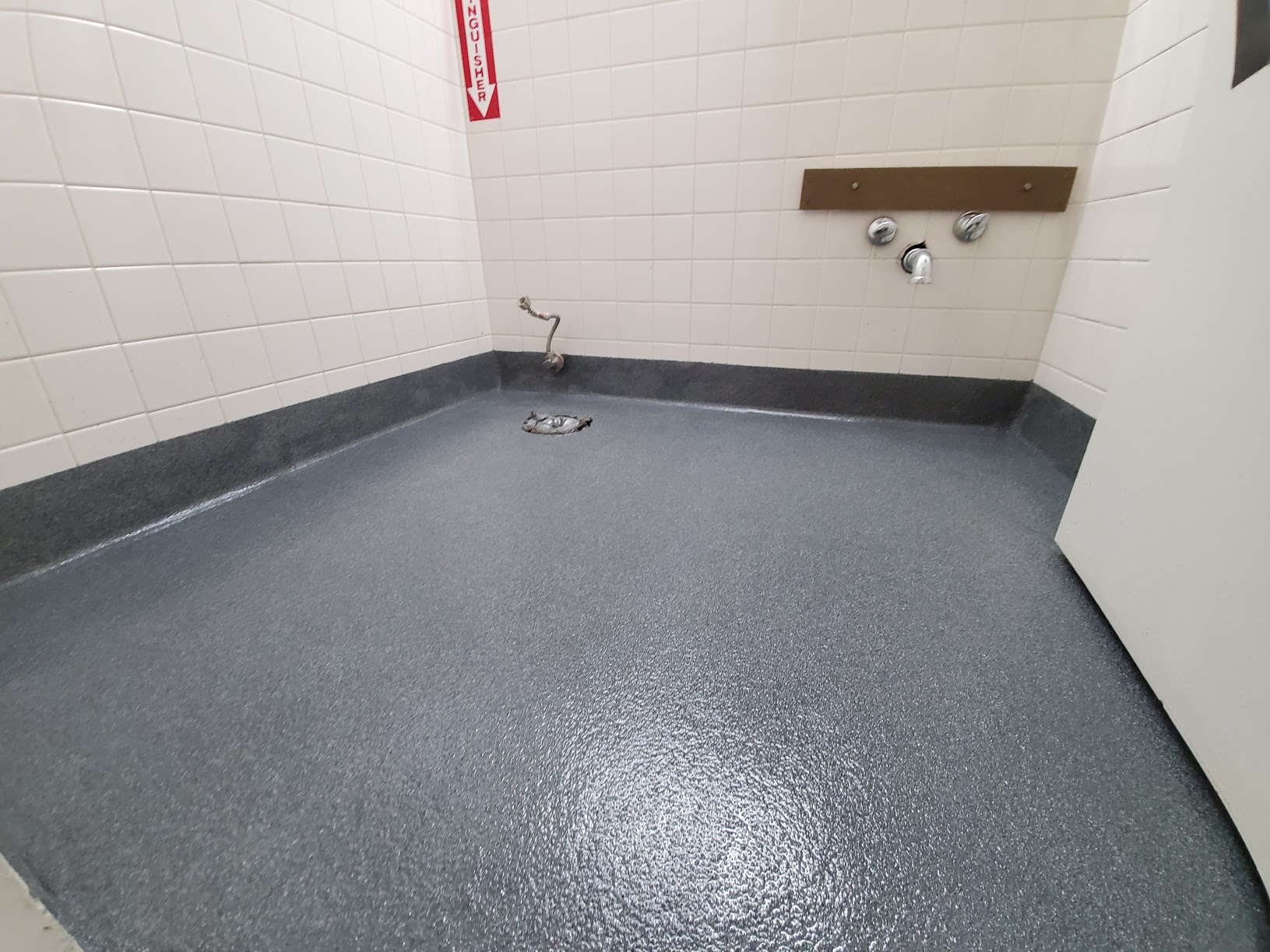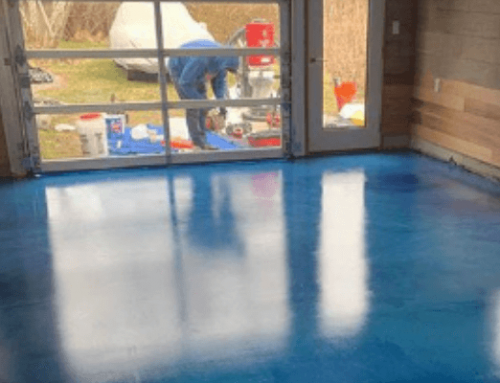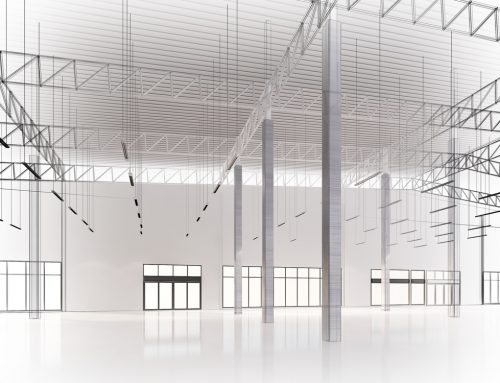Now, more than ever, FDA-approved antimicrobial flooring is important for places like schools, food processing plants, commercial kitchens, and hospitals. An antimicrobial floor coating is important for areas where sensitive work is being performed, or where a large number of people gather. So for airports, malls, gyms, and grocery stores, floor systems that are made out of non-porous material are incredibly important for the safety of the people that operate within the area.
Examples of Antimicrobial Flooring Systems
Antimicrobial flooring helps resist the growth of bacteria, mold, and fungi. It does so by being non-porous, which makes it hard for microorganisms to grow. A seamless surface is generally required for antimicrobial flooring so that microbes do not grow in the cracks where the floor meets the wall.
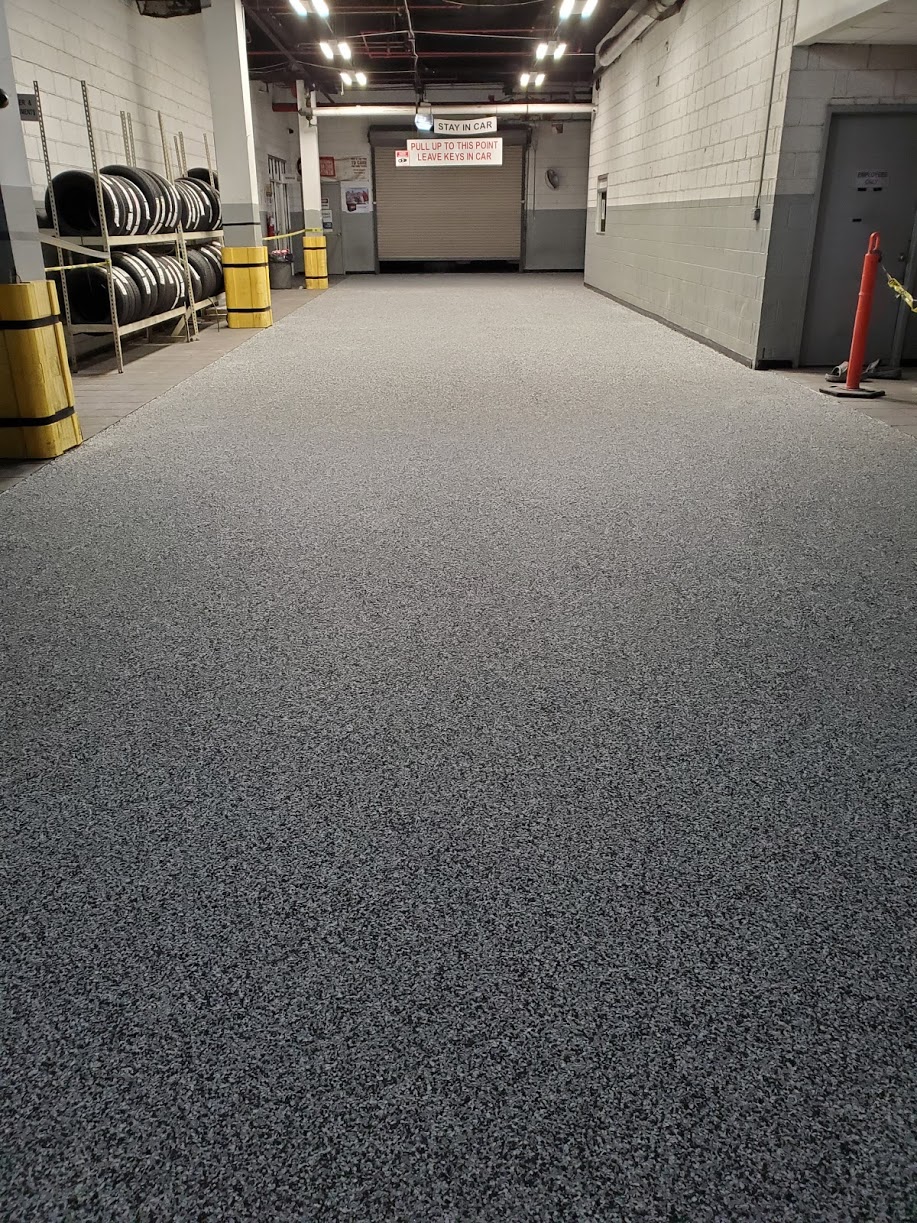 It’s important to understand that bacteria and microorganisms can be brought in from just about anywhere. From shoes to sneezes, to wind and vehicles, bacteria are going to be just about everywhere. Microbes will still exist, even with daily deep cleans and precautionary measures. This is why it is so important to take every measure possible to ensure cleanliness. Antimicrobial additives in epoxy flooring provide bacteria-fighting properties that help destroy bacterial growth across the entire flooring system. If you want anti-pathogen safeguards in your facility, epoxy floor coatings are the way to go.
It’s important to understand that bacteria and microorganisms can be brought in from just about anywhere. From shoes to sneezes, to wind and vehicles, bacteria are going to be just about everywhere. Microbes will still exist, even with daily deep cleans and precautionary measures. This is why it is so important to take every measure possible to ensure cleanliness. Antimicrobial additives in epoxy flooring provide bacteria-fighting properties that help destroy bacterial growth across the entire flooring system. If you want anti-pathogen safeguards in your facility, epoxy floor coatings are the way to go.
First, let’s understand why regular old concrete is not a good choice for an antimicrobial flooring solution. Concrete is fundamentally a very porous material; that means there are very small, minute holes throughout the substrate that will allow water, air, or in this case, microorganisms to pass through the material. Some spilled water will invariably be sucked into untreated concrete. The same can be said for chemical spills, germs, viruses, oil, water, and anything else that happens to spill on bare concrete.
This is why epoxy floor systems are incredibly important for industries that need antimicrobial flooring solutions. Our FDA-approved and USDA-approved epoxy flooring material is quite unlike concrete:
Epoxy is not permeable. Since it is not porous in nature, epoxy will not allow microbes, water, or other substances to seep into the concrete underneath the epoxy. Untreated concrete floors may lead to a higher chance of infection in bacteria-prone locations such as bathrooms, gyms, hospitals, and so on.
Epoxy can be formulated with additional antimicrobial formulations.
Even More Antimicrobial Flooring Solutions
All of our antimicrobial epoxy flooring solutions offer a large variety of colors, designs, and textures. For example, metallic epoxy and epoxy flake come in hundreds of color and texture pattern choices. The great thing about epoxy is that it is incredibly durable and easy to install; epoxy is also quick to install when compared to conventional antimicrobial methods such as vinyl. This helps cut down on facility or commercial downtime, which can help maximize profits and worker/pedestrian safety.
Our products meet stringent USDA compliance requirements, CFIA approval, and FDA approved standards for facility operation. A large number of industries such as pharmaceutical, bakeries, dairy processing plants, kitchens, laboratories, healthcare facilities, hospitals, and processing/packing plants use epoxy to help make their facility run at optimal safety.
Our antimicrobial floor coating fights pathogens, is non-metallic, and does not offer a strong odor during the installation process. This is great when you need to protect environments such as locker rooms, living spaces, bathrooms, and hospitals.
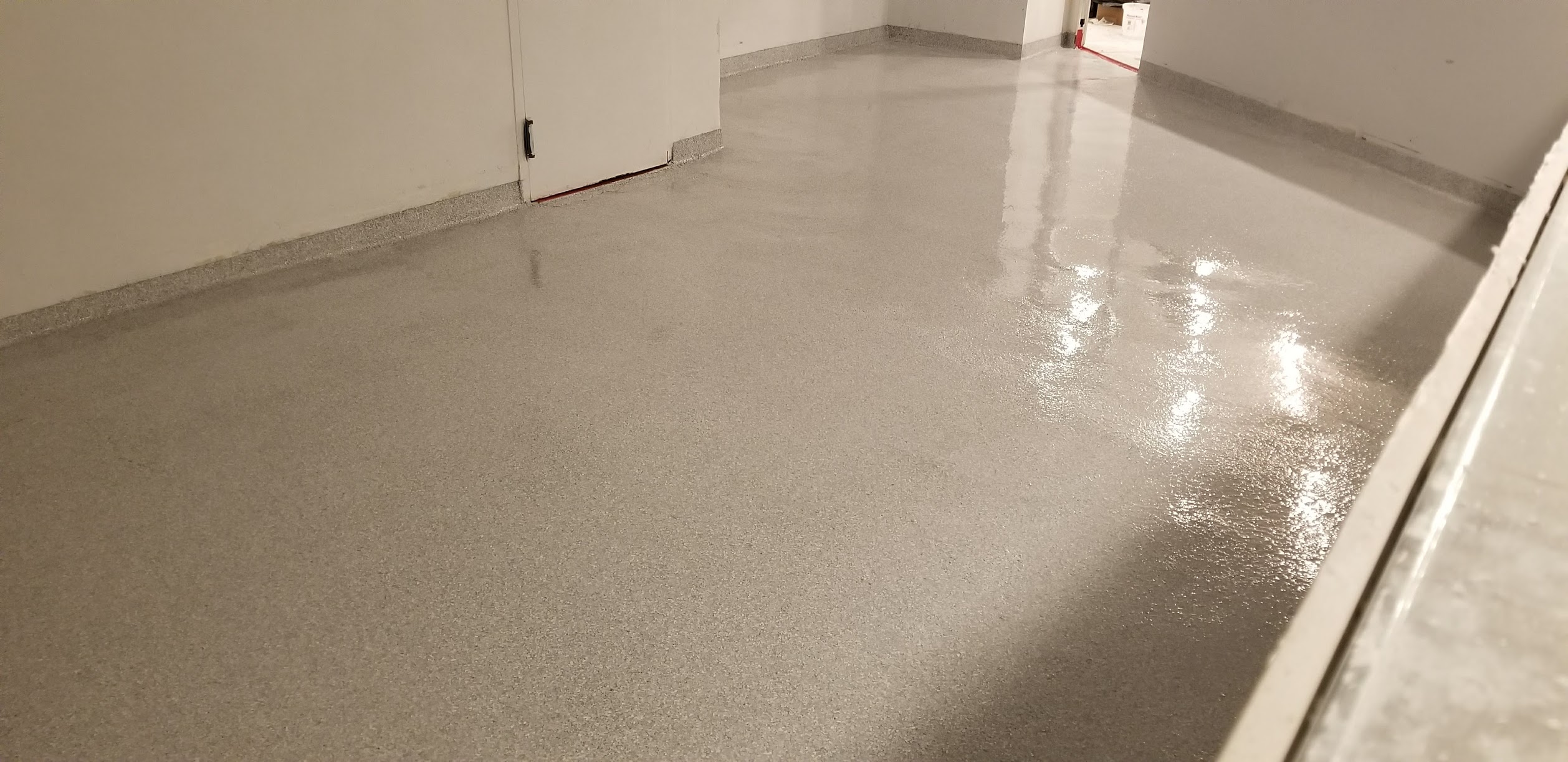
Industrial and Commercial Antimicrobial Floor Systems
Many commercial facilities and industries are required by law (USDA and FDA) to have floors with antifungal and antimicrobial properties. Our urethane and epoxy topcoats deliver protection frommicrobes, harsh cleaning chemicals, strong solvents, thousands of pounds of force, scuffs, scratches, and extensive foot- and vehicle- traffic.
While there are many products available that will help build an antimicrobial floor, epoxy floor coatings seem to be the best when you measure longevity, effectiveness, and cost. The non-porous surface of epoxy prevents microbes from growing because they have no place to hide and grow! A daily deep clean will make quick work of any bacteria that is skidding on the surface, as they will be unable to find a crack in the material to hide in (unlike bare concrete and other surfaces and materials such as grout).
Even more advantages of antimicrobial epoxy floor coatings:
- Epoxy and the antimicrobial additives used are completely safe for humans and animals, and also completely food-safe and non-allergenic (in fact, its hypoallergenic!).
- Epoxy is USDA and FDA approved, as epoxy is one of the most antimicrobial substrates money can buy.
- Not only is epoxy antimicrobial, it can make rooms much brighter, especially when it is formulated for high-gloss.
- Water and moisture resistance is the name of the game when it comes to epoxy. This helps prevent mold, fungi, and bacterial growth.
- The durable surface of epoxy will help prevent damage that would otherwise be caused by heavy foot traffic, vehicle traffic, and large machinery.
- Since it is so easy to clean and maintain, epoxy is very sanitary.
- Due to the quick installation time, epoxy is becoming one of the fastest and easiest ways to get a solid, incredibly durable, and long-lasting antimicrobial flooring solution.
How Long Will Antimicrobial Flooring Last?
With the right additives and a thick epoxy floor coating, antimicrobial flooring tends to last 5-10 years depending on how much the floor is used. It also depends on the industry the floor is being used for. A hospital floor may need to be replaced less often than, say, a meat packing plant. Industrial applications, where heavy machinery is constantly running, may see even less of a lifespan. It always depends on a number of factors that are unique to the floor and industry in question.
When to Replace Antimicrobial Flooring
How do you know when to replace an antimicrobial floor? The best bet is to check for minor signs of aging and damage. This could include miniature cracks and abrasions in the surface of the epoxy. If this occurs, it is best to speak with a flooring professional about the state of your floor.
Fo the best in antimicrobial flooring in Manhattan, contact Manhattan Epoxy Co. today!
